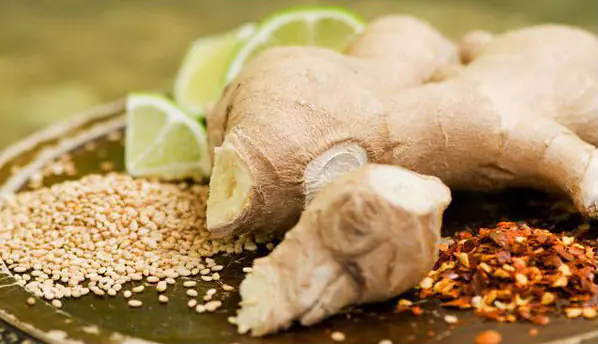Diabetes is one of the most common diseases in the world. It causes high blood sugar levels, which can lead to serious complications such as nerve, kidney and heart damage. Recently, scientists from the University of Sydney discovered that ginger can help control blood sugar levels in diabetics.
The discovery was made based on the results of experiments with ginger root extract and cultured muscle cells. As it turned out, ginger is able to increase the consumption of glucose by cells independently of insulin. This is due to gingerols, the main polyphenolic components of ginger root, especially 6-gingerols and 8-gingerols. Gingerols increase cellular glucose uptake by increasing the surface distribution of the GLUT4 protein, which allows glucose to be transported into cells.
In patients with type 2 diabetes, the ability of skeletal muscle to consume glucose is significantly reduced due to impaired insulin signal transduction and inefficiency of GLUT4. Research into the properties of ginger has shown that it can improve this ability, which may be useful for controlling sugar levels in diabetics.
In addition, it has previously been found that ginger can mitigate the daily progression of muscle pain after exercise. This may be especially helpful for diabetics, who may experience pain and discomfort with physical activity.
Today, ginger is grown in different parts of the world, including China, India, Indonesia, Australia, West Africa, Jamaica and Barbados. Ginger tincture and powder are used for motion sickness, gastric ulcers, atherosclerosis, disorders of fat and cholesterol metabolism, as well as to increase appetite and improve digestion and normalize the condition of blood vessels.
The study authors hope that the findings will be studied in human clinical trials in the near future. If clinical trials prove ginger's effectiveness in controlling blood sugar, it could lead to the development of new diabetes treatments and improve the lives of millions of people around the world.



